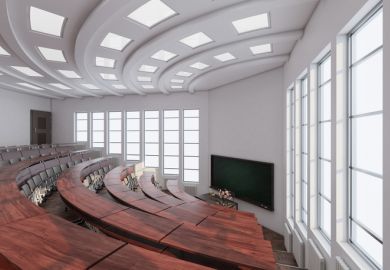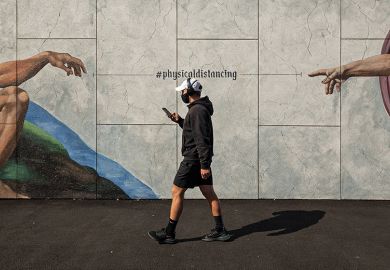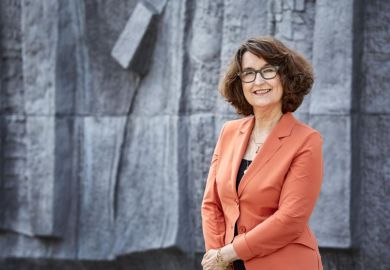The pandemic is hindering rather than accelerating the banishing of lectures from Antipodean campuses, as administrators delay reforms for the sake of their change-weary staff.
A survey on the future of face-to-face lectures in Australia and New Zealand has revealed mixed views, with some universities staunchly opposed to their reintroduction, some eagerly anticipating their resumption and some hedging their bets.
But the survey of 43 universities, conducted by the Australasian Council on Open, Distance and eLearning (Acode), found that the prognosis for lectures was better in the short than medium term – notwithstanding Covid-related restrictions on large-scale gatherings. Fourteen universities intend to resurrect on-campus lectures this year, but only 10 have committed to them in future years.
Acode president Michael Sankey said that the results had been an eye-opener. “It caught some people by surprise that so many were not thinking of [bringing] back lectures in their traditional form,” said Professor Sankey, director of learning transformations with Griffith University’s Learning Futures Group.
The lecture is dead, long live the lecture: Redefining higher education in a digital age
The survey results suggest that if Covid has been a catalyst for the suspension of lectures over the past 12 months, pedagogical considerations will determine whether they make a comeback. While seven respondents cited the pandemic as the main reason they had discontinued on-campus lectures, nine credited “other drivers” and 13 blamed a “bit of both”.
Ten universities said that “sound pedagogy” was their primary reason for ditching lectures, while 20 said that it was one of many drivers. Just six said that it played little or no role.
Professor Sankey said that universities had found new ways of providing information that would have been conveyed through “formal face-to-face lectures” in pre-Covid times. “Many of these institutions have also taken a stance that they will now not return to that mode of delivery in the future.”
But while the pandemic may have sparked an exodus from lectures, it is also inhibiting their replacement. Comments at the end of the survey suggest that some universities are delaying the roll-out of new delivery modes because of change fatigue.
“One of the key factors influencing such a shift is workload,” one respondent said. “We have just done a major shift of our workload model which is yet to be bedded down. Once it has settled, we’ll be better placed to consider changes to our approach.”
Another described last year’s online migration as a “firefighting” effort. “We’re currently undergoing a major restructure, so the learning and teaching plan for the new era hasn’t really been formulated yet.”
Professor Sankey said that many universities were replacing long-form lectures with short recordings more suited to students’ attention spans and time availability. “In a normal lecture you might cover five, six, seven topics, and try and get it all out of the way for the week.
“Why not do that in four, five, six smaller chunks and [combine] it with the other material that you want them to read?”
The survey found that while most universities were introducing blended models combining both online and on-campus learning, a minority remained committed to face-to-face lectures as a cornerstone of their “brand”.
Professor Sankey said that Australia’s oldest universities fell into this camp. “Their value proposition is the lecture and the face-to-face experience. That’s fair enough – that’s their model. Those institutions will hold on to that model. There’s no business driver to change the model.”
Register to continue
Why register?
- Registration is free and only takes a moment
- Once registered, you can read 3 articles a month
- Sign up for our newsletter
Subscribe
Or subscribe for unlimited access to:
- Unlimited access to news, views, insights & reviews
- Digital editions
- Digital access to THE’s university and college rankings analysis
Already registered or a current subscriber?








